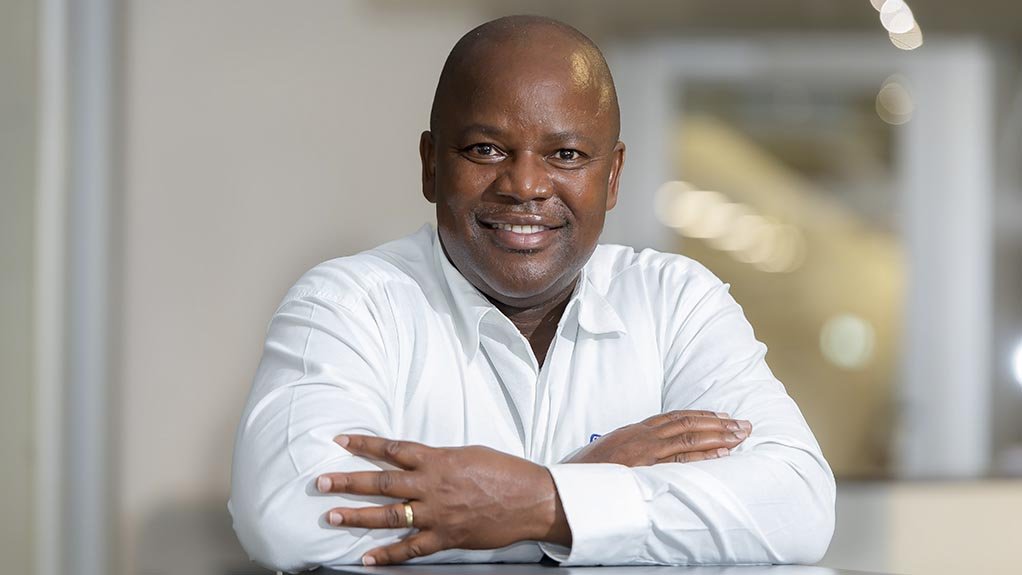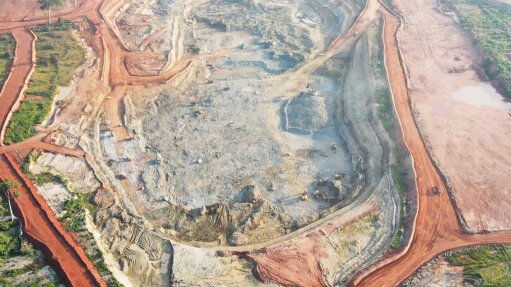Best-of-breed rail model needed for critical national infrastructure, says Thungela
JOHANNESBURG (miningweekly.com) – Once short-term and medium-term rail restoration have been achieved, a best-of-breed approach should be adopted to put South Africa on a competitive logistics path, says thermal coal exporter Thungela.
“We need to develop a model that allows a best-of-breed to be able to run some of the critical infrastructure so that our national logistics are much more efficient,” said Thungela CEO July Ndlovu, who questioned the sustainability of the traditional South African model of the State providing all critical infrastructure and highlighting the distinct ‘swim lanes’ that need urgent attention in restoring this country’s broken rail logistics infrastructure.
“We continue to work tirelessly with the industry, government, and Transnet to find sustainable solutions for the logistics challenges that continue to bedevil South Africa, the industry, and our company.
“We’re encouraged by the setting up of the national logistics committee to tackle some of these issues on an urgent basis,” Ndlovu added.
Mining Weekly: What needs to be done by Transnet in the short, medium, and long term and is that being matched by what is being done in the short term for the medium term and long term?
Ndlovu: The best metaphor for this is swimming and swimming lanes and the swim lanes that we ought to be looking at. Secondly, what we also have to accept as business and as stakeholders in South Africa is that this problem has become bigger than merely Transnet, and our expectation that Transnet must do everything themselves. That horse has bolted.
My standpoint is, firstly, what we’ve got must be made efficient by fixing the rail infrastructure, improving maintenance, enhancing planning scheduling and working to ensure that security incidents are managed at an acceptable level, and when security incidents happen, we can recover with speed – and I’ve seen significant improvement following incidents. We had two significant derailments in May and we recovered from both in record time.
Secondly, I spoke to all of you about the state of the rail infrastructure in the North and Northeast Corridor and the speed restrictions and I pointed out that there were roughly 273 km of speed restrictions. All those have more or less been removed, except for about 38 km, so progress continues. That is one swim lane.
The second swim lane relates to the fact that we will not be able to get Transnet back to its capacity of railing more than 70-million tonnes of coal a year unless we bring back both the long-term standing locomotives and the new locomotives, and the new locos can be sourced from the Chinese that were supposed to supply them or from somebody else. I’m personally encouraged by the continued discussions that we’re having with the Chinese to ensure that we find a solution to that, whether through the Chinese or somebody else. We need that capacity to be able to go beyond 60-million tonnes.
The third swim lane is a more macroeconomic policy environment. What this has demonstrated very clearly is that the model that we’ve had in South Africa of the State providing all critical infrastructure may not be the most sustainable model. We need to develop a model that allows a best-of-breed to be able to run some of the critical infrastructure so that our national logistics are much more efficient. That is a separate swim lane and that means we have to continue to work on the others. The White Paper that came through is quite encouraging. That work has become urgent but deregulating a broken piece of infrastructure is not good enough so we’ve got to fix it as we do the others. Those would be the three that I see.
I raise the issue of best-of-breed to make a point that globally what we are seeing is that nation States' budgets and fiscus are stretched to the limit by the need to provide services to people and there are private players who’ve got the skills and the capital to be able to provide critical national logistics.
COAL EXPORTS LOWEST SINCE 1993
As reported by Mining Weekly, the number of tons of coal exported through Richards Bay Coal Terminal (RBCT) last year fell to the lowest level since 1993, with only 50.35-million tonnes being exported.
Sixty-nine coal mines rail their coal for export along the north corridor coal line to RBCT and locomotive availability is the biggest logistics challenge.
If coal prices remain depressed and logistics fail to improve, thermal coal exporters could be forced to downsize and reshape their portfolios.
Comments
Press Office
Announcements
What's On
Subscribe to improve your user experience...
Option 1 (equivalent of R125 a month):
Receive a weekly copy of Creamer Media's Engineering News & Mining Weekly magazine
(print copy for those in South Africa and e-magazine for those outside of South Africa)
Receive daily email newsletters
Access to full search results
Access archive of magazine back copies
Access to Projects in Progress
Access to ONE Research Report of your choice in PDF format
Option 2 (equivalent of R375 a month):
All benefits from Option 1
PLUS
Access to Creamer Media's Research Channel Africa for ALL Research Reports, in PDF format, on various industrial and mining sectors
including Electricity; Water; Energy Transition; Hydrogen; Roads, Rail and Ports; Coal; Gold; Platinum; Battery Metals; etc.
Already a subscriber?
Forgotten your password?
Receive weekly copy of Creamer Media's Engineering News & Mining Weekly magazine (print copy for those in South Africa and e-magazine for those outside of South Africa)
➕
Recieve daily email newsletters
➕
Access to full search results
➕
Access archive of magazine back copies
➕
Access to Projects in Progress
➕
Access to ONE Research Report of your choice in PDF format
RESEARCH CHANNEL AFRICA
R4500 (equivalent of R375 a month)
SUBSCRIBEAll benefits from Option 1
➕
Access to Creamer Media's Research Channel Africa for ALL Research Reports on various industrial and mining sectors, in PDF format, including on:
Electricity
➕
Water
➕
Energy Transition
➕
Hydrogen
➕
Roads, Rail and Ports
➕
Coal
➕
Gold
➕
Platinum
➕
Battery Metals
➕
etc.
Receive all benefits from Option 1 or Option 2 delivered to numerous people at your company
➕
Multiple User names and Passwords for simultaneous log-ins
➕
Intranet integration access to all in your organisation




















